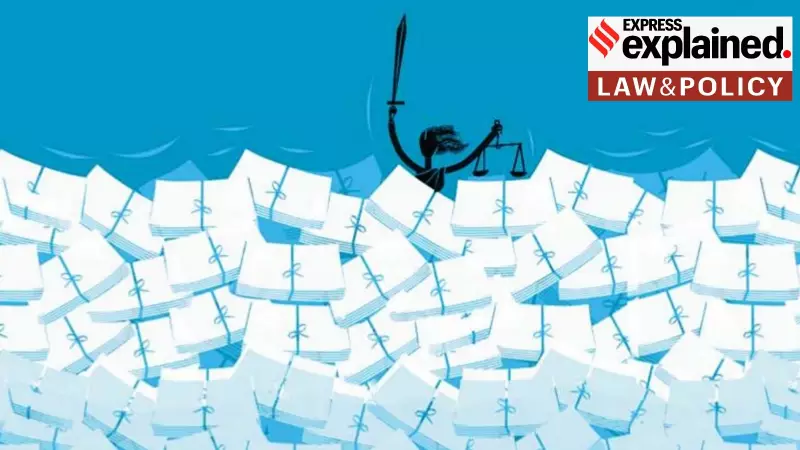
In a startling revelation that exposes deep cracks in India's judicial system, recent data from the Supreme Court has uncovered a massive backlog of execution petitions waiting to be processed across the country's courts. The numbers paint a grim picture of justice being not just delayed but potentially denied to thousands of litigants.
The Scale of the Crisis
According to the latest statistics, a staggering 70,801 execution petitions were pending nationwide as of June 2024. This represents cases where courts have already delivered judgments but the implementation of these verdicts remains stuck in legal limbo.
The breakdown reveals that district and subordinate courts bear the heaviest burden with 69,208 pending execution petitions, while High Courts across India are struggling with 1,593 unresolved cases. Even the Supreme Court, the apex judicial body, has its share of this challenge with pending execution matters.
What Are Execution Petitions?
Execution petitions are crucial legal instruments that ensure court judgments translate into actual relief for winning parties. When a court delivers a favorable verdict—whether for monetary compensation, property rights, or specific performance—the winning party must file an execution petition to formally request the court to implement and enforce the judgment.
Without successful execution, a court judgment remains merely a paper victory, providing no real benefit to the litigant who fought the legal battle.
State-Wise Distribution Highlights Concerns
The data reveals significant disparities in execution petition pendency across different states:
- Uttar Pradesh leads with the highest number of pending execution petitions in subordinate courts
- Bihar and West Bengal show concerning numbers in their district judiciary systems
- Several southern states, while performing relatively better, still face substantial backlogs
The Human Cost of Judicial Delays
Behind these staggering numbers lie real human stories of suffering and frustration. Consider these scenarios:
- Accident victims awarded compensation who cannot access the funds they desperately need for medical treatment
- Property dispute winners who cannot take possession of their rightful assets
- Employees awarded back wages or reinstatement who continue to wait for relief
- Businesses that have won contractual disputes but cannot recover their dues
Root Causes of the Execution Bottleneck
Legal experts point to several factors contributing to this crisis:
- Inadequate infrastructure and staffing in execution departments
- Complex procedural requirements that create multiple hearing dates
- Resistance from judgment debtors using every available legal avenue to delay implementation
- Limited enforcement mechanisms available to courts
- Overburdened court systems prioritizing fresh cases over execution matters
The Way Forward: Potential Solutions
Addressing this massive pendency requires multi-pronged approaches:
Technology integration could streamline the execution process through better case management systems and digital tracking of implementation progress. Specialized execution courts or dedicated officers could focus specifically on ensuring judgments are implemented promptly.
Legal reforms might include simplified procedures for straightforward execution cases and stricter penalties
As India continues its journey toward becoming a global economic powerhouse, an efficient judicial system that delivers not just judgments but actual justice becomes increasingly crucial. The resolution of these 70,000+ pending execution petitions represents not just legal statistics but the restoration of faith in the judicial process for countless citizens.






